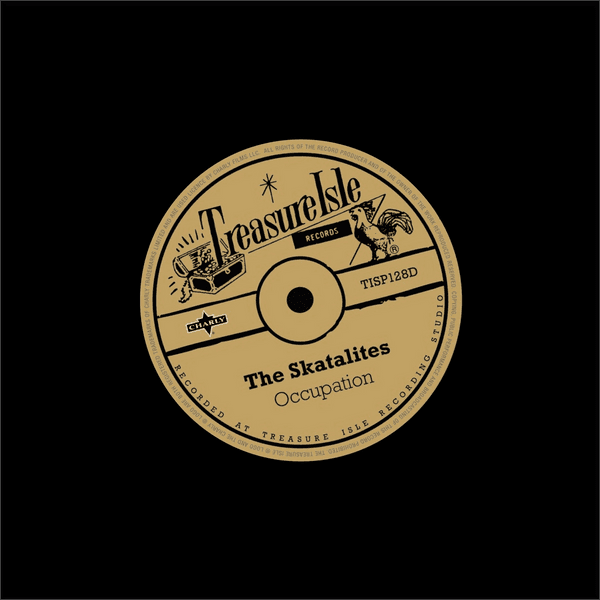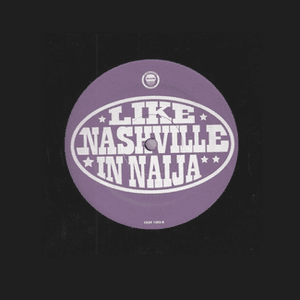




Link copied

Ron Bailey – the notable movie and TV sound mixer, who most recently worked on Steve McQueen’s Small Axe series – grew up with his siblings in Camden, North London. His parents had come over from the West Indies in 1955, and possessed a shrine to country music in their very front room: their stereogram. Albums like The International Jim Reeves and singles from Hank Williams and Patsy Cline were rarely off the turntable, Bailey recalls; “country music was heavily played on a Sunday, first thing in the morning, to get us ready for church.” Outside the home, as a teenager, he found the music all pervasive. “You’d go to a rave, put a country song on, and all those pretend ‘bad boy’ yardies would go straight into dancing to country.” Even today, Bailey says he’d like Glen Campbell’s ‘Wichita Lineman’ and Kenny Rogers’ ‘Ruby (Don’t Take Your Love To Town)’ played at his funeral. But where has the connection developed between country music and Bailey’s Caribbean heritage, when it sounds such an unlikely match? For Bailey, it was, and still is, all about the storytelling in the songs; “If you wanted to know what was going on in your life or you wanted to move forward, instead of having a therapist, you would listen to a country song. They had to have a story; telling you something about life”.
Back in the 1950s, the first commercial radio station, Radio Jamaica Rediffusion – aka RJR - arrived in Jamaica; with it, the station brought the likes of Patsy Cline, Jim Reeves and Skeeter Davis to Kingston. As the station had already distributed 200 “little brown radio boxes” to communal places like police stations, schools and shops, it spread the word – and the music. Around the time, many Jamaicans travelled for seasonal farm jobs in the southern states of the US, witnessing African Americans holding R&B block parties around huge speakers, something they’d copy with their own sound systems when they returned home.
Throughout the 50s, there was ever-growing excitement in the country around cinema – in particular Westerns, starting in the 1940s and 50s with hugely popular “singing cowboys” like Roy Rogers and Gene Autry – before then exploding with Spaghetti Westerns. They all had stories with clear moral themes, vengeance and redemption, feeding into a culture that prized church-going and sermons with strong, moralising stories. They loved their “bad boy” outlaws in Jamaica too, so DJs Clint Eastwood and Josey Wales took their names from Spaghetti Westerns and their stars, not to mention “Lee Van Cliff” and even the Lone Ranger.
If the 50’s were the start of the Caribbean’s passionate love affair with country music, then the 1960s saw its romance flower in different directions. Having heard Claude Gray’s 1961 country hit, ‘I'll Just Have Another Cup of Coffee, country fan Bob Marley re-interpreted this in 1962 for his second single ‘One Cup of Coffee’. Years later, his passion unabated, Marley gave Darrell Glenn’s ‘Crying in the Chapel’ a fresh makeover with ‘Selassie Is the Chapel,’ one of his rarest singles.
The passion was shared both ways; Johnny Cash loved being able to sit and survey the Caribbean from his holiday home in Jamaica. To prove this mutual affection, when Cash recorded ‘Ring of Fire’ in 1963, the following year the Skatalites brought out their own instrumental version, ‘Occupation’. Complete with that same distinctive mariachi horn sound, the track would become famous across football terraces the world over. Further Ska-tinged instrumental versions of country hits emerged, including Carlos Malcolm’s Afro Jamaican Rhythms’ spin on Gene Autry’s ‘Ghost Riders in the Sky’, their reworking of the theme from Bonanza as ‘Bonanza Ska’, plus the Skatalites’ 1967 adaptation of the theme to The Guns of Navarone, which even entered the UK Top 40 charts.
It wasn’t hard to find the right instruments for country music in the West Indies either, as the existing Jamaican style of ‘mento’ music already used banjo, fiddle, harmonica and acoustic guitar. As the affair continued, country influences started sneaking into original compositions too - The Paragons released ‘The Tide Is High’ in 1966, later famously covered by Pop / New Wave favourites Blondie. You can hear the country, almost bluegrass influence from the fiddle of Raymond Young, aka ‘White Rum Raymond’. Raymond would play electric violin not only on this, but on countless Kingston sessions; including early Toots & the Maytals singles ‘Get Ready’ and ‘Fever’.
Meanwhile, other islanders - including those from St Lucia - went to work in Florida in the 1960s and 70s as guestworkers; cutting sugarcane and coming back home armed with records by Hank Williams, Charley Pride and George Jones. One performer who has capitalised on the lasting craze is Linus Modeste, a St Lucian country singer whose stage name is LM Stone. He says: “They don’t see it as a ‘foreign music’ – it is part of our culture.” After spending a few years in Nashville, winning a talent contest at the Wildhorse Saloon and making albums there, he’s back in St Lucia. Stone reckons he could have gone further in Nashville if he’d veered away from his trademark George Jones sound, but he couldn’t help himself; it’s in his blood. “Whenever I open my mouth – I could be singing reggae – it comes out in the George Jones format.” Stone is right – uncannily so – as you can witness through one of his own songs, ‘Don’t Let the Bottle Take Control of Me’. The wonderful George Jones’ hit, ‘He Stopped Loving Her Today’ also made its mark on Jamaican singer Beres Hammond, who gave it his own twist, but made sure to retain some countrified pedal steel.
Reggae would also go on to get its hands on songs by smooth country icon Jim Reeves, including Roy and Enid’s ‘He’ll Have to Go’. Blind singer Roy Richards and Enid Cumberland went into Studio One in 1968, and the resulting vocals glide over a beautifully slippery reggae rhythm. The influential reggae band Toots & The Maytals always loved country music, and one of their early Studio One hits, ‘Never Grow Old,’ is another nod to Jim Reeves, and notably his country gospel hit, ‘Where We’ll Never Grow Old,’ with White Rum Raymond’s bluegrass violin once again appearing across the track. Most notably, in 1972, the Maytals’ reggae version of John Denver’s ‘Take Me Home, Country Roads’ cleverly transferred the song from West Virginia to West Jamaica. Toots’ country reggae was also beloved of Willie Nelson, and they collaborated on Toots’ True Love record, and Nelson’s Countryman album, notably with this Johnny and June Carter Cash song, ‘I’m A Worried Man’, written when Cash was living there.
Inspired females in the 1970s were also falling head over heels for the charms of artists like Tammy Wynette, who’s evergreen song, ‘Stand by Your Man’ was ripe for country-reggae treatment. Notable takes of the song would be delivered by Hortense Ellis, Claudette Miller, and this rhythm-heavy, string-laden version from Merlene Webber.
But as heads were turning for glitzier country artists across the globe, the Caribbean improbably fell hook, line and sinker for a certain Kenny Rogers. The islands lapped up everything the silver-bearded crooner sang, years before he ever visited. Dancehall star Busy Signal personified Jamaica’s love for Rodgers, recording his own version of ‘The Gambler’. Another dancehall legend, Brigadier Jerry, reworked Rogers’ song ‘Coward of the County’ into his own track, ‘In The Ghetto’, (taking its name from Elvis Presley’s song), while Beres Hammond shared the same sentiments as Ron Bailey over in London – expressing his love for Rogers’ storytelling: “Country tells stories. It tells about the home and the heart and the breaking up and the getting back together and the new person in your life, it's almost like [a] soap.”
Kenny Rogers himself said he had no idea what to expect when he first came to play the Air Jamaica Jazz & Blues Festival. “We just assumed it was a show, until it took us four hours to get from our hotel to the concert because so many people were walking to the venue. I never assume people know my music, [but] they knew every word. [It was] one of the most fun performances I've ever done. Jamaicans live music, they don't just listen to it.” The love affair was mutual, and Rogers not only returned and holidayed there, but would also open an outlet of his Roasters restaurant in Kingston. When Rogers died in 2020, he was mourned so deeply there that the Prime Minister of Jamaica, Andrew Holness, stopped everything to send his condolences. “I pause to acknowledge the passing of one of the greatest singers and performers of our time, Kenny Rogers. Like many Jamaicans, I grew up listening to his storytelling [through] music. May his soul Rest In Peace.”
It's not all been plain sailing in the 70-year love affair between country music and the Caribbean. Their passion for country remains unabated, but the islanders turn their backs on anything modern that sounds more like rock music. They’d far rather grab the karaoke mic for Tammy or Dolly, Kenny or Hank. Some see a problem, though, and feel that the islanders are stifling their own indigenous culture – so much so that there have even been calypso songs in protest, including ‘Too Many Country and Western Junkies’. But as long as the love for storytelling is passed down the generations, and the people of Caribbean continue to play country music on Sunday mornings before going to church, it feels like the bond will stay strong; with those tunes continuing to act as a tonic. As Ron Bailey says: “when things were bad, country songs kept everyone going in the house, and gave everyone hope”.





